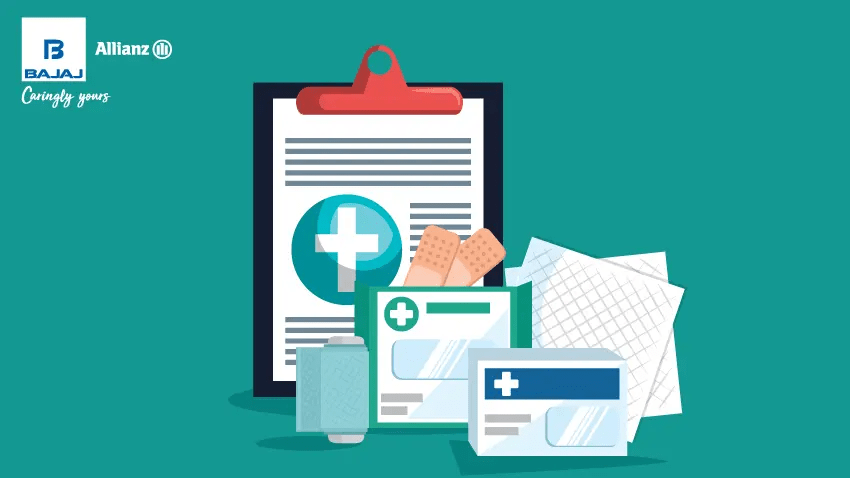Health insurance is a type of insurance plan that covers medical expenses incurred by an individual or a group of people. As a self-employed individual, it is important to have health insurance as you do not have access to employer-sponsored health insurance plans. Having health insurance can protect you and your family from unexpected medical expenses that can be financially devastating.
In addition to providing financial protection, they also help you save on taxes.
In this article, we will discuss everything you need to know about health insurance for self-employed individuals in India.
Types of Health Insurance Plans for Self-Employed Individuals
There are different types of
medical insurance plans available in India that cater to the needs of self-employed individuals. These include:
- Individual Health Insurance
- Family Floater Plans
- Group Health Insurance
Choosing the Right Health Insurance Plan
Choosing the right health insurance plan can be a daunting task, but it is important to select a plan that meets your requirements. Here are some factors to consider when selecting a plan:
- Coverage
Coverage refers to the amount of financial protection offered by your health insurance plan. It is important to choose a health insurance plan with a high coverage limit, as this will ensure that any possible medical bills are covered. It is also important to choose a plan that covers hospitalization expenses,
pre-existing medical conditions, emergency costs, regular health check-ups, medicines, and medical supplies. *
- Premiums
Premium is the amount that you need to pay in order to get coverage under a medical insurance plan. Premiums can vary depending on the coverage limits, type of policy, and region. Therefore, it is important to compare quotes from different health insurance companies before making a decision. *
- Network of Hospitals
This is important to consider when selecting a health insurance plan, as it will determine which hospitals the plan covers. Many plans allow you to visit any hospital, while others have a list of hospitals that they cover. *
- Benefits
Different online health insurance plans offer different benefits. It is important to compare plans to determine which plan offers the most beneficial coverage. Common benefits include coverage of doctor’s visits, medicine and medical supplies, preventive care, and sometimes even alternative treatments. *
- Claims Settlement
It is important to understand how a health insurance company handles claims settlement. Different companies have different policies and procedures. So, it is important to be aware of the
claims settlement process before making a purchase decision.
- Pre-Existing Diseases
Many health insurance plans exclude coverage for pre-existing diseases, so it is important to check if the plan covers them before signing up. *
Benefits of Health Insurance for Self-Employed Individuals
- Tax Benefits
When wondering
what is health insurance, people often say it’s a safety net for when someone falls sick. Health insurance premiums are tax-deductible, up to a certain limit, as per the Income Tax Act 1961. **
- Financial Protection
Health insurance ensures financial protection in the event of a medical emergency.
- Savings
Self-employed individuals can save up to 60% on the total amount that they would otherwise need to pay out of pocket.
- Coverage of Pre-existing Conditions
Health insurance policies usually cover pre-existing conditions such as diabetes or hypertension, once the waiting period ends. *
- Financial Support when Self-employed Individuals are Unwell
Health insurance policies ensure that self-employed individuals continue to receive financial support even when they are unwell or incapacitated.
- Maternity Benefits
Some online health insurance plans for self-employed individuals also offer maternity benefits.
How to Apply for Health Insurance?
- Gather Necessary Documents
Before beginning the application process, applicants must ensure they have all the necessary documents and information ready. This includes basic personal info, KYC and income proof, among other required documents.
- Choose The Right Policy
Research and compare different types of plans and opt for the best option depending on your needs.
- Fill In the Application Form
Application forms can be completed online or offline. Make sure the information is accurate and complete.
- Submit The Application
Submit the form to the insurance company with the necessary documents and information.
- Await Acknowledgment
Wait for a response from the insurance company as it could take a few days or weeks.
- Make Payments
Once approved, make the required payments to initiate coverage.
- Receive Policy Documents
Receive documents containing policy details, coverage amounts, and the date it commences.
Conclusion
To ensure that you are secure against illness and injuries, you need to understand
what is health insurance and learn to manage it. By properly managing health insurance, self-employed individuals can minimize the financial impact of unforeseen medical emergencies. It is important to consider a variety of health insurance plans, make sure pre-existing conditions are covered and make sure the plan fits your needs and budget. Doing so will ensure that the individual is fully prepared in the event of an unexpected medical emergency.
* Standard T&C Apply
** Tax benefits are subject to change in prevalent tax laws.
Insurance is the subject matter of solicitation. For more details on benefits, exclusions, limitations, terms, and conditions, please read the sales brochure/policy wording carefully before concluding a sale.
 Service Chat:
Service Chat: 

